By Kollengode S Venkataraman
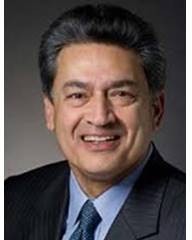
Rajat Gupta (picture on the left), an alumnus of IIT-Delhi (1971) and Harvard Business School MBA (1973), was the youngest and the first foreign-born managing director at McKinsey & Co. He was barely 45 when became the chief executive of McKensey. His background is the stereotypical Bengali Bhadralok — his father was a journalist and professor, and his mother taught in a Montessori school.
His parents died when he was in his teens. He was brilliant in his studies.
His meteoric career on Wall Street as a foreign-born Wall Street executive was a model for ambitious Indian business school graduates. He was a board member at Goldman Sachs, Proctor & Gamble and AMR (the holding company of American Airlines); and he was in many big-banner global philanthropies fighting AIDS, TB, malaria…
Gupta is also a convicted felon. In 2012 Gupta was given a 2-year prison term and a one-year supervised release, plus a $5 million fine for insider trading. The jury convicted him for colluding with billionaire Raj Rajaratnam, the hedge fund manager of Galleon Group, then one of the largest hedge funds. Gupta’s net worth at that time was around $100 million. Savor the irony that Gupta’s parents, as reported in the Economic Times in India, were communists.
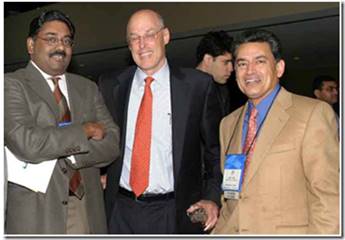
In his first interview after coming out of prison, Gupta talked, not to any US print media in New York such as the Wall Street Journal, New York Times, where he made his mark in his career and his millions, but to Vikas Dhoot of The Hindu. The interview was published in March 2017 under the title “Had a Good Time in Prison.” See here: www.tinyurl.com/RajatGupta-Good-Time-in-Prison.    Â

The case against him was for “trading privileged information when he was a director at Goldman Sachs and many other big corporations” with billionaire Raj Rajaratnam, manager of the hedge fund Galleon Group. Rajaratnam is serving his 10-year jail term in the same case. Gupta conceded to Dhoot that he wouldn’t have gone to jail for sharing information if he was more careful about whom he trusted: “If I were to fault myself, I would say I trust too many people.” After all, he was sitting on many corporate boards with access to policy-level privileged information of the business world having the potential to make huge profits, if you know such privileged information ahead of others.
After his prison release, he went to India, where he was accorded a homecoming welcome by his friends and associates in New Delhi, who are among the richest and most famous. See here: www.tinyurl.com/Gupta-HomeComing-AfterJail.
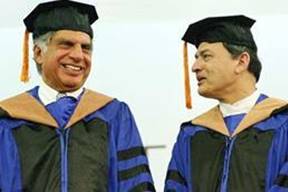
“We welcome Rajat wholeheartedly. I don’t know of another PIO [person of Indian origin] who has done more for India. Fairly or otherwise, he has served his term. We have to move on in life. Forgive, forget and let things go,†said Mr Analjit Singh, DEO of Max Indian, to the Economic Times.
Bharti Airtel chairman Sunil Mittal waxed in exuberance, “He [Gupta] has served time for an offence which he continues to challenge in courts. I am sure Rajat will find a renewed purpose to use his skills. He drew strength from Bhagwad Gita through his difficult time which, I hope, will shape his future.â€Â Mittal also said Gupta brought to bear his position as the head of a global consultancy to focus on issues like public health and education in India.
After being released early from prison in late 2015, Gupta was sent to complete the sentence confined to his home. In a letter to his buddies on January 1, 2016, Gupta shared his prison experiences. The letter was recently made public. Here are excerpts from his letter:
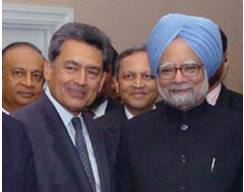
“[On this] New Year’s Day… I could not but reflect on my time in prison. A difficult chapter of my life [comes] to a close. The last eighteen months have taught me a lot and I will mostly remember it as a joyful time, full of camaraderie, laughter… … I have forged some deep friendships that I will keep for the rest of my life. I learnt many new skills and was able to teach fellow inmates a few too.
“Even though the [prison] regime tries hard to ensure that the prison does not become a community, most of us look after each other and help whenever we can.
“In the last 18 months, I lived in three different facilities, nine months in a low security prison, two months in solitary confinement and seven months at the main prison.
“As a result, there was a great variety of living situations, experiences and people I encountered. Every place has its own peculiarities and culture. There were a few experiences that I will never forget, such as the first gay couple who wanted to get married despite the reticence of the regime in the prison… … It turned out that one of the men was not gay at all. It was a ruse employed in order to get transferred to some other facility.
“Well, in addition to reading, meditating, and working on writing a new book, I learnt many new skills including some new card games … I also took up chess again, after 50 years… … I even learnt some new hood [Black slang] language like, ‘Let me see that’ — which means give that to me. ‘Riding together’ — which means eating and cooking together.
“Overall, I am glad to be leaving here, but I had a good time. In a very strange way, I will miss the place…
“Necessity is the Mother of Invention. It’s so true in prison. The exquisite dishes that inmates can cook using only the microwave… we only had access to the microwave oven. I enjoyed a variety of cuisines, Mexican, French, Asian, Spanish, Puerto Rican, Chinese, Italian and of course, usual American foods.
“I had a world class trainer who pushed me into shape doing squats, sit-ups, push-ups and the like. I have had expensive trainers outside but no one as good as this guy who cost $5 an hour.
“As they say, life is a series of experiences. None is inherently good or bad. It is what you make of it. This experience has been good for another very important reason. The love I received from each one of you (my friends) during this difficult time and you should know it means a lot to me. Let me close by wishing you a very Happy New Year.”
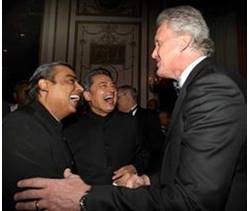
In Rajat Gupta’s letter to his friends after leaving jail there is no remorse — because that would imply accepting guilt. The tone of the letter is as if he went to jail as a Satyagrahi (Seeker of Truth) like Mohandas Karamchand Gandhi or for Civil Disobedience a la Martin Luther King Jr. Gupta went to jail for nothing noble. He went to jail for greed, as an arthagrahi (seeker of wealth) by indulging in abuse of privileged information.
Fascinatingly, one sees in Gupta’s letter the ability of the human psyche to compartmentalize personal behavior into watertight chambers, even when the contents of the chambers are in blatant contradiction. This is similar to priests being caught in pedophilia while they preach public morality from their pulpits, or when our Congressmen take conservative stands displaying moral rectitude in speeches, when in their personal lives, their behavior is just the opposite. When we try to understand such inner workings of human mind, it is disconcerting.
In looking at Rajat Gupta, are we looking at ourselves? That is a scary thought. ♠ END

